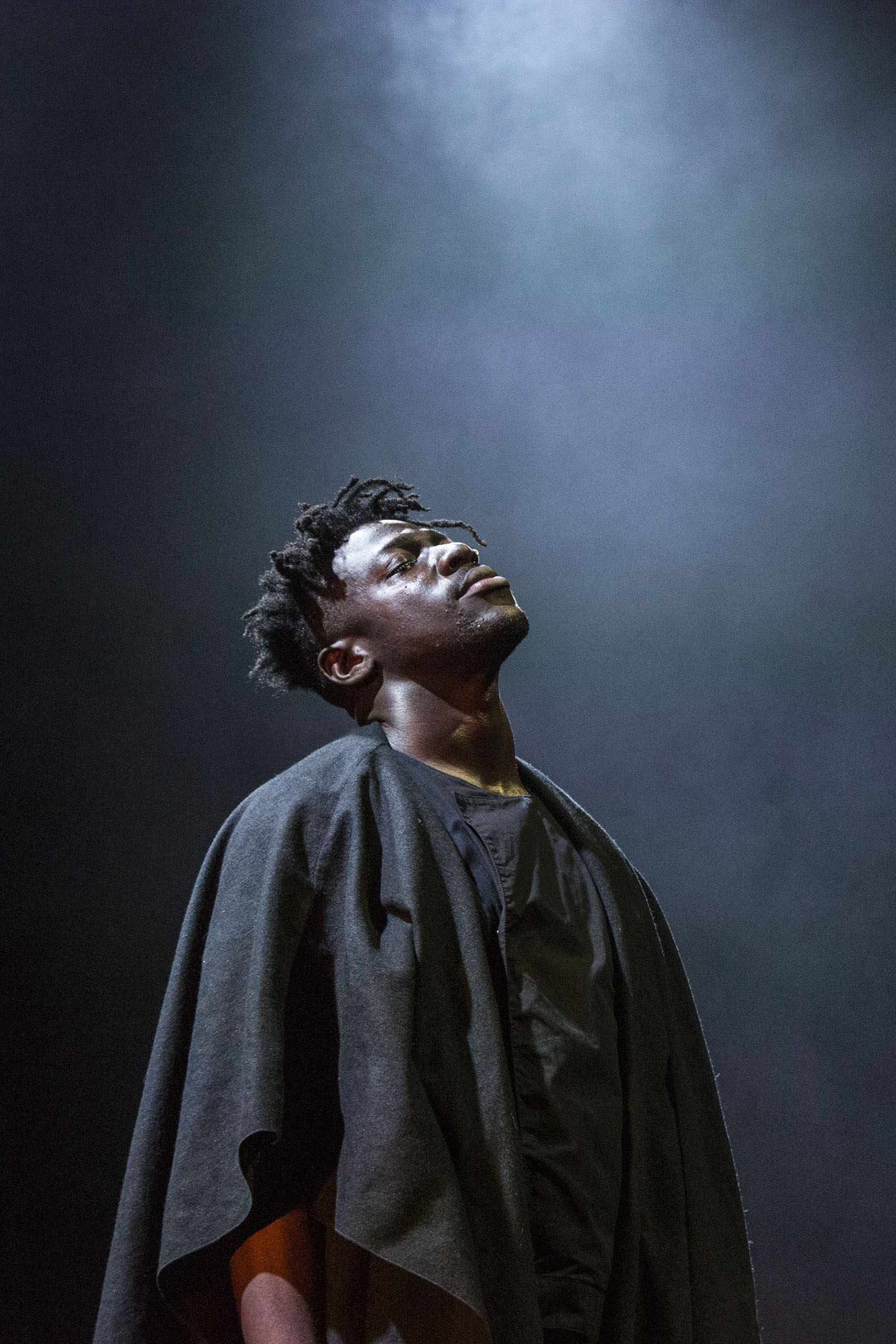Moses Sumney converses with the spirit of Nina Simone
Nina.
Begin invariably with the spectre of Eunice. Suspended in the metaphysical and cordoned off into a small sliver of flesh, she sits with her own self-curated moniker. Nina Simone.
Eunice and Nina sit in one body. The lianas of her collective hands dispense the collective cries of the slaves in the South while dancing with pan-African projections into the melancholic and rambunctious keys of a classical piano, muddied by the disorderly concertos of jazz. The repository of knowledge embedded in the tips of her — their — fingers are unparalleled.
The Desperate Ones. Simone’s distinctive timbre repurposes Jacques Brel’s 1983 composition. Playing around with all seven octaves on the piano, her not-quite-there-face moves from grin to grimace as the chords direct them to sonic landscapes, long forgotten, staking claim in contemporary memory. The grin has since been abandoned. A grimace takes its place. She begins:
They hold each other’s hands
They walk without a sound
Down forgotten streets their shadows kiss the ground
Their footsteps sing a song that has ended before it has begun
they walk
without a sound
the desperate ones …
Through her the lyrical content of the song transforms itself into the all-too-familiar narrative reifying black life. Foot on the pedal, long limbs at the ready, the moniker and its woman continue:
Just like the tiptoe moth
They dance before the flame
They’ve burned their hearts so much
That death is just a name
And if love calls again
So foolishly they run
They run without a sound
The desperate ones”
Moses.

[Moses Sumney operates in the same lexicon of prodding and melancholic genius as Nina Simone (Susan Cordeiro)]
A young man who appears to be of the same ancestry and lineage as Simone finds room in this ephemeral locale. I recognise the vibrato of his voice immediately. A multiplicity of sound emerges from his mouth. Dissonant harmonies introduce Moses Sumney as he enters the spectre through his own composition, titled Doomed.
Hollow one
With inverted tongue
From whence does fulfilment come?
When I expel
From this mortal shell
Will I die for living numb?
Simone and Sumney operate in the same lexicon of prodding and melancholic genius. One rooted in the quagmire of a life not quite recognised or recognisable in a gendered and raced society, and the other in the strange opacity of love or perhaps lovelessness — “aromanticism”. Sumney described it as the incapacity to feel, or perhaps even the unwillingness to reciprocate, romantic feelings of love.
But Simone interjects, dissents. Love for her is at the root of black life and enterprise.
She and playwright Lorraine Hansberry once had a conversation about it, which they titled “young, gifted and black”.
The pairing of Simone and Sumney is reminiscent of another fantastical literary pairing — Sycorax and Caliban, characters in William Shakespeare’s play The Tempest. Shakespeare’s recollection explores a relationship between an estranged mother and son. A witch and a slave.
In my interpretation, it is a story of a woman and a man. Differentiated and dislocated from one another by temporality, but pointing to questions that tug at the human condition — questions at the epicentre of black life.
They ask across space and time: What is it to exist without being seen? Is it possible to find love, hold love and reciprocate love from this place of invisibile visibility?
Sumney’s honeyed falsetto continues to stir:
I feel you
But nobody else
Though you’re someone I can’t see
Yet you say nothing
Of the stoic suffering
That stirs lukewarm in me
If lovelessness is godlessness
Will you cast me to the wayside?
Simone’s call for the “desperate ones” is a haunted whisper, responding and reflecting on Sumney assertions. Although the sonic quality of Sumney and Simone is invariably idiosyncratic — marked with their individual brilliance as vocalists and musicians — the content of this dialectical exchange suggests that, at their core, they have an affinity with the blues.
The blues are, for theorists like Lewis R Gordon, a kind of philosophical medium. Gordon writes that “blues music is full of irony. Its sadness exemplifies an adult understanding of life that is both sober and, ironically, sometimes happy. It is a nondelusional happiness often marked by self-deprecation and critical evaluation, the kind of happiness or good humour that is a realisation instead of a diversion.”
The lyrics in Sumney’s Doomed seem to do just that. With a muffled falsetto, Sumney intones:
Am I vital
If my heart is idle?
Am I doomed?
Cradle me
So I can see
If I’m doomed
Sumney and the spirit of Simone mirror and converse with one another in an existential back and forth. Although the lyrics may betray them, neither of them is hopeless in their delivery. As Gordon writes: “All blues productions remind us that life is not something to escape but something to confront.”
And, as if privy to this, Simone rounds off this encounter and reverts to the spectral plane:
Let he who threw the stone at them
Stand up and take a bow
He knows the verb “to love”
But he’ll never know how
On the bridge of nevermore
They disappear, one by one
Disappear without a sound
The desperate ones.